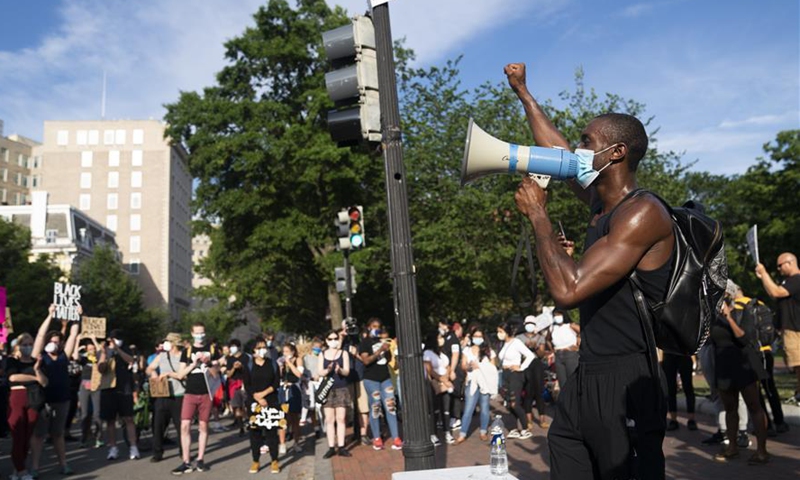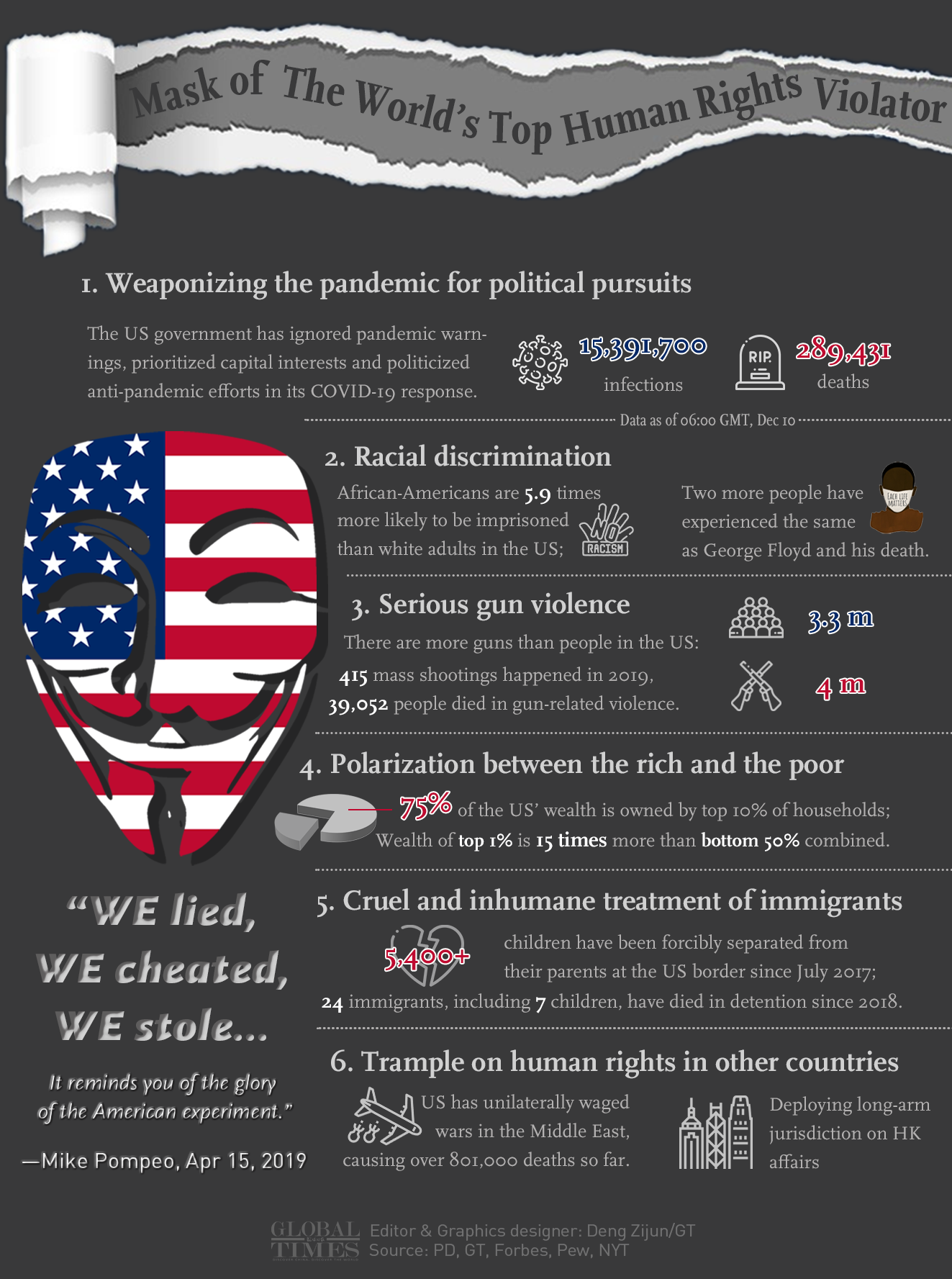Chinese Netizens shame US embassy over feigned human rights concerns
By Cui Fandi Source: Global Times Published: 2020/12/10 16:17:55

Demonstrators protest against racial injustice to mark Juneteenth, commemorating the end of slavery in the United States, near the White House in Washington, D.C., the United States, June 19, 2020. This year's Juneteenth comes amid nationwide demonstrations against police brutality and racism triggered by the death of George Floyd in police custody. More than 20 rallies, marches and events were scheduled for Friday in Washington, D.C., with hundreds more in over 40 states, according to the Movement for Black Lives, a coalition of U.S. groups representing the interests of black communities.Photo:Xinhua
"How dare the US stage another shady attempt on Chinese social media by pointing its fingers at the human rights in China ahead of World Human Rights Day on December 10," read the comment a netizen left under the official Weibo account of the US embassy in China. Another comment stressed that "the country whose name is translated as the 'beautiful country' in Chinese has been mocked with the same sounds as 'moldy country,' due to its infamous human rights abuse records that are too numerous, and still taking place across the country."
"Participation in peaceful protests is a fundamental aspect of civic life in a free society. These rights should be protected, not suppressed," the US embassy in China wrote in a post on Wednesday on Sina Weibo, China's Twitter-like microblogging platform, along with a photo of anti-government parades during last year's pro-secession riots in the Hong Kong Special Administrative Region (HKSAR), in which quite a number of participants shouted their support for "Hong Kong independence."

Infographic: GT
In an obvious backlash, Chinese net users were aware that the provocative US embassy tweet came with US support for the "Hong Kong independence" movement, a blatant interference in China's internal affairs. And they decided it was about time to teach the troublemaker a lesson.
"What you are trying to sell hardest is what you lack the most. Those 289,000 COVID-19 deaths in the US, they surely had the human rights to die. Is that right by your logic?" one netizen asked. "Where are the human rights for the African Americans?" wrote another, referring to the recent Black Lives Matter protests in the US.
"And if we discuss human rights with the US, we should start with Edward Snowden, Julian Assange and Chelsea Manning," Shen Yi, a professor at the School of International Relations and Public Affairs of Fudan University in Shanghai, wrote under the post. Shen is followed by over 1 million Weibo users.
Shen's comment was placed atop under the post, gathering more than 400 responses.
"It is a consensus that human rights issues are open for discussion. Yet, netizens are angry and disappointed because in today's world, the most important human right is the right to live," Shen told the Global Times.
"It requires joint efforts from the global community, but the US is trying to divert attention by making irrelevant attacks on other countries," he noted.
The innocent-looking US embassy in China has long been challenged by Chinese netizens under its malicious posts, and even shamed it with truths the US has tried to cover.
In a recent scenario, the US embassy posted an illustration with a caption on World Anti-Corruption Day, saying "the US is striving to enhance public transparency and cleanness of governments, and the citizens' watchdog role across the globe."
The post was followed by comments like, "How come the US is saying one thing and doing another, by offering a haven for corrupt criminals from all over the world?"
Posted in: SOCIETY